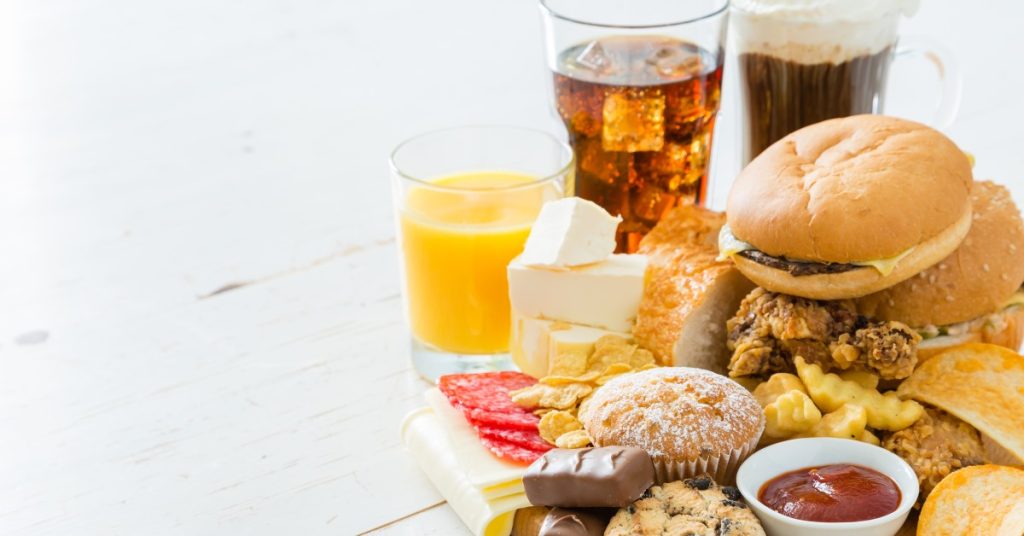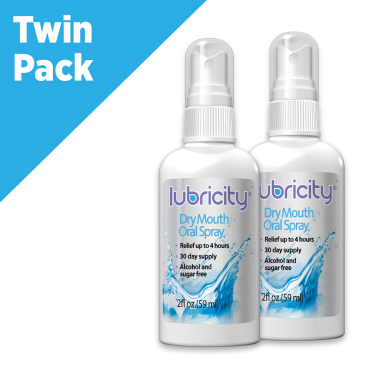Sjögren’s syndrome is an autoimmune disorder that affects the moisture-producing glands in the body. This includes the tear glands and salivary glands. When these glands don’t produce enough moisture, it can cause dry eyes, dry mouth, joint pain, fatigue, and more. While there is no cure for Sjögren’s syndrome, avoiding foods that may worsen symptoms is important. Let’s discuss some of the worst foods for Sjögren’s syndrome.
Foods to Avoid in Sjögren's Syndrome
Certain foods can exacerbate the dryness and inflammation associated with Sjögren’s syndrome. Being mindful of what you eat and drink can help manage your symptoms.
Here are some of the top foods to limit or avoid if you have Sjögren’s syndrome.
Foods High in Salt
Consuming too much sodium can cause issues for those with Sjögren’s syndrome. Salt causes the body to retain more fluids. For people who already suffer from dry eyes and dry mouth, this can exacerbate these symptoms. It’s best to limit processed foods, canned items, salty snacks, and adding extra salt to meals.
Instead, use more fresh herbs and spices to flavor foods. Onion powder, garlic powder, black pepper, dill, and paprika are great options. Check labels on packaged foods and aim for under 500mg of sodium per serving. Also, skip the salt shaker and let your taste buds adjust to less salty foods.
Sugary Foods and Beverages
A diet high in sugar not only leads to potential weight gain, but it also causes inflammation in the body. Inflammation is already a problem for those with autoimmune disorders like Sjögren’s syndrome. Therefore, limiting added sugars is advised.
Foods to avoid include soda, candy, ice cream, baked goods, sugary cereals, and flavored yogurt. Instead, satisfy your sweet tooth with naturally sweet foods like fruits. Berries, citrus fruits, melons, apples, and pears are fantastic options. You can also use small amounts of honey or maple syrup to sweeten foods and drinks.
Spicy Foods
For those already suffering from Sjögren’s syndrome’s dry mouth, eating spicy foods can further irritate the sensitive tissues. Chile peppers, hot sauce, curries, and other fiery foods can cause discomfort. It may also make dry mouth feel even worse.
Rather than avoiding flavor completely, try using cooling herbs and spices instead. Mint, cilantro, dill, basil, and parsley add flavor without the burning heat. Lemon and lime juice also add a bright pop of flavor. And opt for milder versions of spicy cuisines.
Caffeine
Caffeine acts as a diuretic, meaning it causes the body to flush out more fluids. This can exacerbate dehydration and worsen dry mouth symptoms. Those with Sjögren’s syndrome should limit coffee, tea, soda, and energy drinks containing caffeine.
Instead, drink more decaf beverages, herbal tea, and water. Carry a water bottle with you throughout the day to stay hydrated. Drinking liquids actually stimulates saliva production, so sipping water prevents and improves dry mouth.
Alcohol
Alcohol is dehydrating and can hinder saliva production in those with Sjögren’s. It also causes inflammation within the body. For those reasons, it’s best to avoid or strictly limit alcoholic beverages.
Opt for non-alcoholic beer, wine, and cocktails instead. You can also satisfy the social aspect of drinking with a sparkling water or mocktail. Diluting alcoholic drinks with ice and water is another way to minimize dehydration.
Fried and Processed Foods
Fried foods like French fries, chicken nuggets, and fried fish contain pro-inflammatory oils. The high heat also destroys any beneficial nutrients. Processed snacks like chips, crackers, deli meats, and cheese contain excessive sodium levels too.
To minimize inflammation, choose healthier cooking methods like baking, roasting, sautéing, and grilling. Focus your diet on anti-inflammatory foods like leafy greens, olive oil, fatty fish, flaxseed, walnuts, berries, and tart cherry juice.
Certain Dairy Products
Dairy foods like milk, ice cream, and cheese are often high in fat and salt content. The naturally occurring sugars in dairy may also aggravate dry mouth. Fermented dairy like yogurt and kefir are easier to digest. However, those with lactose intolerance or sensitivity may need to avoid dairy altogether.
Non-dairy milk options like almond milk, coconut milk, rice milk, and oat milk are great alternatives. They provide bone-strengthening calcium and vitamin D without inflammatory effects.
Acidic Fruits and Juices
Citrus fruits like oranges, grapefruits, and lemons have high acid content. Tomatoes and pineapple are also quite acidic. For those already struggling with dry mouth, acidic produce can irritate the delicate tissues. Drink water after consuming acidic foods to wash away irritation.
Stick to less acidic fruits like melons, grapes, apples, pears, plums, bananas, and soft tropical fruits. Steer clear of large amounts of orange juice, lemonade, cranberry juice, and other very acidic beverages as well.
Hard, Crunchy, and Crumbly Foods
When chewing and swallowing are difficult due to dry mouth, overly hard, crunchy, or crumbly foods can be problematic. Foods like nuts, seeds, raw veggies, dry toast, crackers, and dry cereals require a lot of chewing. They also cling to the mouth and throat when saliva is lacking.
Moist foods are easier to swallow for those with Sjögren’s. Try soft cooked vegetables, creamy nut butters, moist casseroles, protein shakes, smoothies, soups, and stews. Don’t force yourself to eat difficult foods – make nutritious soft foods your allies instead!
Popcorn and Dry Snacks
Buttery, salty popcorn is a favorite snack for many people. However, those little kernels can be tricky to chew and swallow with a dry mouth. The saltiness also exacerbates thirst and dryness. Other dry, salty snacks like pretzels, potato chips, and crunchy snack mixes pose the same issues.
Choose softer snacks like smooth nut butters on celery or crackers, hummus and veggie slices, cottage cheese, yogurt, fresh fruit, and protein bars. Drink plenty of water after eating to help clear any food particles.
High Fiber Foods
Carbonated Beverages
Mint Gum and Mouthwash
You might assume mint gum or mouthwash would help with dry mouth, but they may do more harm than good. The menthol in mint can actually irritate and inflame salivary glands. Alcohol-containing mouthwashes sting dry tissues as well. Instead, chew xylitol-sweetened gum or suck on sugar-free mints to stimulate saliva flow.
Use an alcohol-free, menthol-free mouthwash without detergents to freshen breath without drying. Coat your mouth with coconut oil to soothe and moisturize. You can also use a dry mouth oral spray specifically designed to provide relief from dry mouth by lubricating and moisturizing the oral tissues. The spray helps keep the mouth wet and comfortable.
Packaged Convenience Foods
Pre-made microwave meals, instant noodles, boxed meal mixes, and canned soups may be quick and convenient. However, they are often loaded with inflammation-provoking sodium, oils, preservatives, and artificial ingredients.
For better nutrition and fewer additives, make homemade versions of your favorite convenience foods. You’ll also control the ingredient quality and texture. For packaged foods, read labels closely and choose low-sodium options without hydrogenated oils.
While no specific diet has been proven to treat Sjögren’s syndrome, avoiding foods that may worsen inflammation and dryness provides symptom relief. Focus on hydration, texture modifications, and anti-inflammatory nutrients to manage this condition. With some simple diet adjustments, you can nourish your body and improve digestion.













